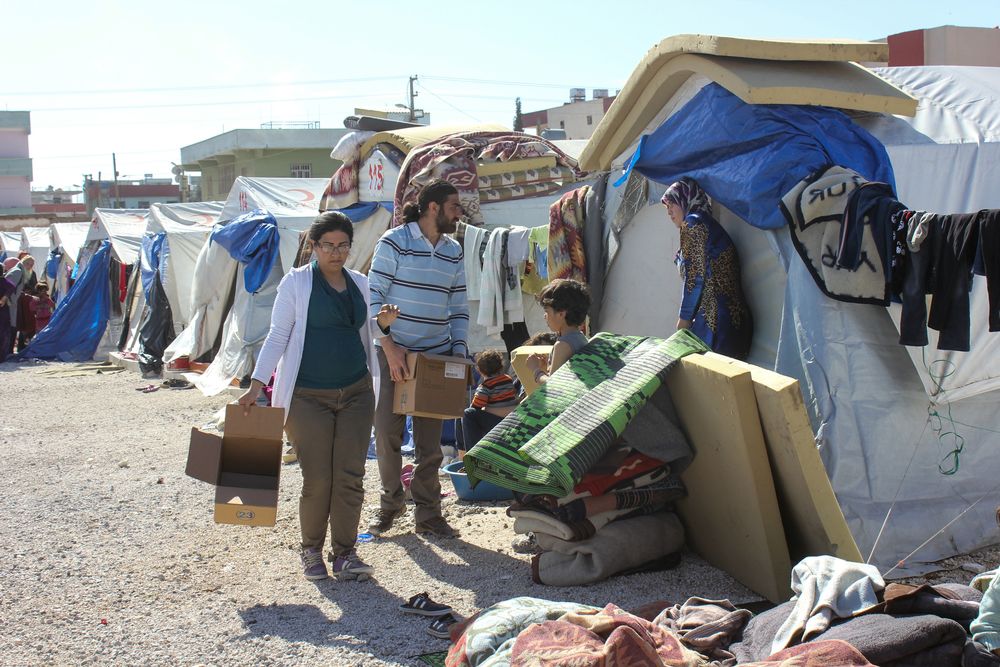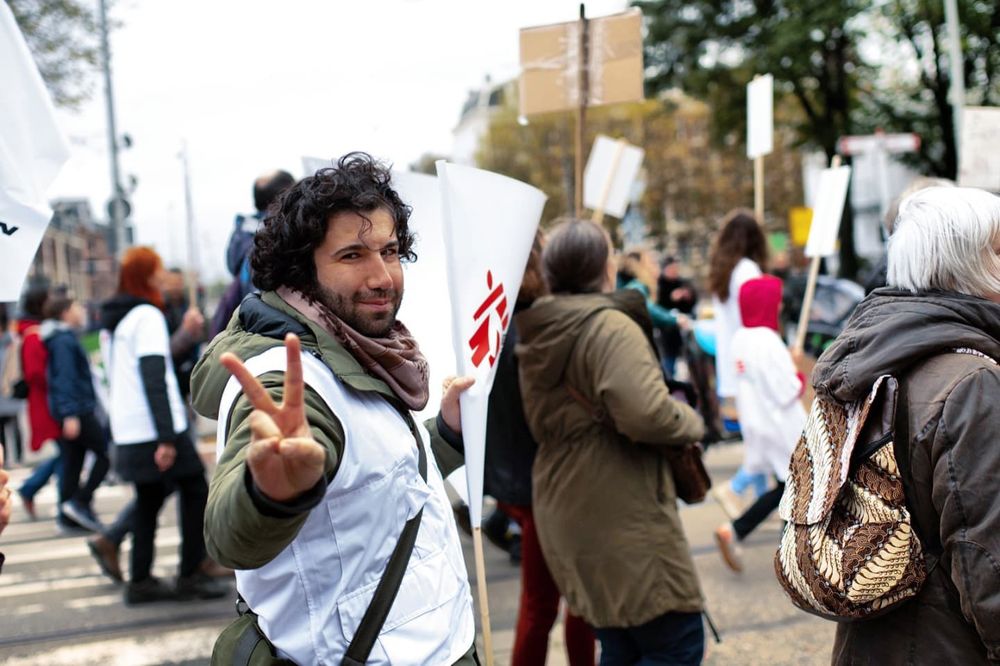Sherwan Qasem is an emergency officer currently based in MSF's office in Amsterdam. Originally from Syria, he was forced to take refuge in Türkiye in 2012.
He began working with MSF in Türkiye as a translator. After this, he worked in a number of roles, including as a project coordinator for MSF's medical projects in Syria and Türkiye, until migrating to the Netherlands in 2017.
While pursuing a career in journalism, Sherwan’s life drastically changed when the civil war broke out. “Syria is a very diverse country,” Sherwan said. “Normally, this diversity meant colorfulness; it meant beautifulness; it meant harmony. But that harmony suddenly turned into a civil war.”
He was forced to leave his neighborhood in Damascus when he was threatened, like many Syrians, because of the complications of the civil war. As a journalist, he was also at risk, since many of his colleagues were disappearing.
 Street scene in Aleppo, Syria. after several months of intense fighting. Photo taken on December 2012. © MSF
Street scene in Aleppo, Syria. after several months of intense fighting. Photo taken on December 2012. © MSF
“It's not easy to talk with you right now when you tell a personal story. Normally I am quite comfortable with public speaking and quite comfortable talking to armed groups, talking to commanders, ministers, even presidents. That's a part of my job working with MSF but when you try to open up and to share your own personal story, it's really not easy. Sometimes you feel something is stuck, but I will go on.”
Sherwan’s second displacement occurred after he returned to his hometown in Syria and found he was not safe there as a journalist. He decided to cross the border into Türkiye , where he tried to stay in touch with people back home.
“I called a friend of mine, and someone picked up and said that my friend had a bullet in his shoulder. A sniper who was on the corner thought that he couldn't spare his life. He didn't die, but at that moment I was told he's between death and life, and I decided I can't stay without doing any action, I can't enjoy my own safety while the situation is really hard there.”
It was through chance that he encountered MSF personnel in Istanbul and decided to join them despite the personal safety risks.
“I started working with MSF as a translator and project coordinator. Later on, I started dealing with my Syrian brothers and sisters who had to escape. In 2014, more than million refugees crossed in [to Türkiye]. Working with all those people who I am part of—we shared the feeling of displacement together.”
 MSF providing health care to Syrian refugees in Türkiye. Photo taken on February 2016. © Diala Ghassan/MSF
MSF providing health care to Syrian refugees in Türkiye. Photo taken on February 2016. © Diala Ghassan/MSF
He later moved to Amsterdam, where he was looking forward to a new beginning.
“Moving to Amsterdam was a new start, new language, new society, new community,” he said. “But I didn't know what was hidden at that time. I didn't know that I will lose one of the most important columns of my life that kept my life quite stable and strict, which was my father.”
His father, who was still in Syria, fell from a roof he was trying to fix in preparation for winter.
“I was panicking,” Sherwan said. “I was sad. Then I decided I had to do something. I went to Iraq and from Iraq I crossed to northeast Syria under Kurdish self-administration.” There, he was able to bury his father and spend time with his mother. Unfortunately, he had to leave again and fly back to Amsterdam while thinking every minute of his mother, who couldn’t move with him.
“That was one of the most difficult moments working for MSF all these years. I know that my projects saved a lot of lives, but at the same time, I couldn't save my own father’s life.” he said.
Sherwan is still based in Amsterdam, where he is now pursuing a graduate degree in genocide studies. “I'm trying to study how genocides are planned, organized, and performed to […] somehow, in the future, avoid them or at least deal with them in a better way.”



